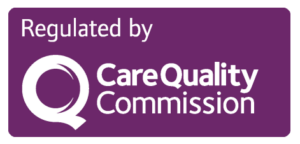Menopause is a significant life transition for many women, marking the end of the reproductive years. However, for those with ADHD (Attention-Deficit/Hyperactivity Disorder), the hormonal changes associated with menopause can be particularly impactful. As estrogen levels fluctuate, they can affect neurotransmitters, especially dopamine, which plays a crucial role in ADHD symptoms. This blog post explores how these hormonal changes can exacerbate ADHD symptoms and why many individuals may not recognize their neurodivergence until perimenopause.
The Role of Estrogen and Dopamine
Estrogen is a vital hormone that influences various bodily functions, including mood regulation and cognitive processes. In women with ADHD, estrogen fluctuations can significantly affect dopamine levels. Dopamine is often referred to as the “feel-good” neurotransmitter; it’s crucial for motivation, focus, and pleasure. When estrogen levels drop during perimenopause, it can lead to a decrease in dopamine, thereby worsening ADHD symptoms.
How Estrogen Changes Impact ADHD
- Cognitive Functioning: Estrogen has neuroprotective properties that help maintain cognitive function. During perimenopause, the decline in estrogen can lead to cognitive fog, memory issues, and difficulties with concentration—all of which are already challenges for those with ADHD.
- Mood Swings: The hormonal shifts can cause mood swings, anxiety, and depression. For someone with ADHD, who may already experience emotional dysregulation, these changes can amplify feelings of frustration or overwhelm.
- Sleep Disruptions: Hormone changes can also impact sleep patterns, leading to insomnia or disrupted sleep. Poor sleep can worsen ADHD symptoms, creating a vicious cycle of fatigue and decreased focus.
The Hidden Neurodivergent Experience
For many women, perimenopause can be a time of self-discovery. Some may realize they are neurodivergent during this transitional phase. The symptoms of ADHD may become more pronounced or challenging to manage, prompting a reassessment of their experiences. This newfound awareness can be both enlightening and overwhelming.
Why Diagnosis Often Comes Later
- Societal Expectations: Many women are socialized to prioritize others’ needs, which can mask their ADHD symptoms. As responsibilities shift during menopause, the pressure can become too great, leading to a clearer understanding of their neurodivergence.
- Cultural Stigmas: There is often a stigma surrounding mental health and neurodivergence, particularly in older women. This can result in delayed diagnosis and support.
- Lack of Awareness: Until recently, ADHD was often thought to primarily affect children. Many women may not have recognized their symptoms or received a diagnosis earlier in life, only to find that the hormonal changes of perimenopause bring these issues to the forefront.
Moving Forward: Strategies for Management
While the connection between menopause and ADHD can be challenging, there are several strategies that can help manage symptoms:
- Consult a Professional: Seeking a healthcare provider familiar with both ADHD and menopause can provide tailored treatment options, including hormone therapy or ADHD-specific strategies.
- Mindfulness and Relaxation Techniques: Practices such as mindfulness meditation, yoga, or deep breathing exercises can help manage stress and improve focus.
- Support Groups: Connecting with other women experiencing similar challenges can provide community support and shared strategies for coping.
- Healthy Lifestyle Choices: Regular exercise, a balanced diet, and sufficient sleep can positively impact both hormonal balance and ADHD symptoms.
Conclusion
Understanding the relationship between menopause and ADHD is crucial for women navigating these life changes. Recognizing how estrogen fluctuations can impact neurotransmitters and exacerbate ADHD symptoms is the first step toward effective management. By seeking support and employing coping strategies, women can better navigate this transitional phase, ultimately leading to improved well-being and self-awareness.
If you or someone you know is struggling with these issues, remember that you are not alone, and there is help available. Embracing this journey can lead to profound insights and empower you to take control of your health and happiness.



